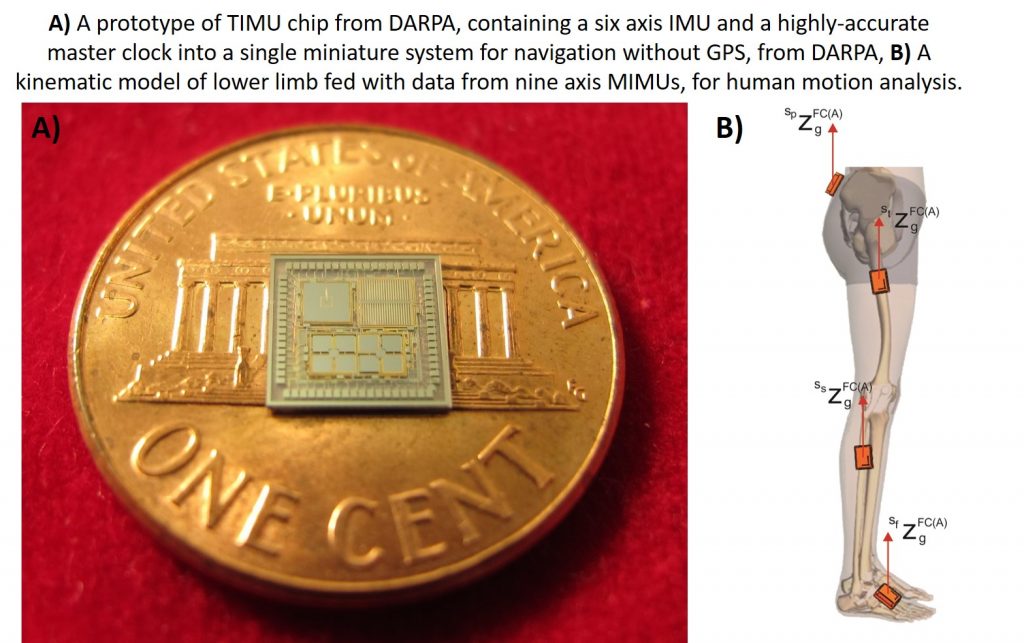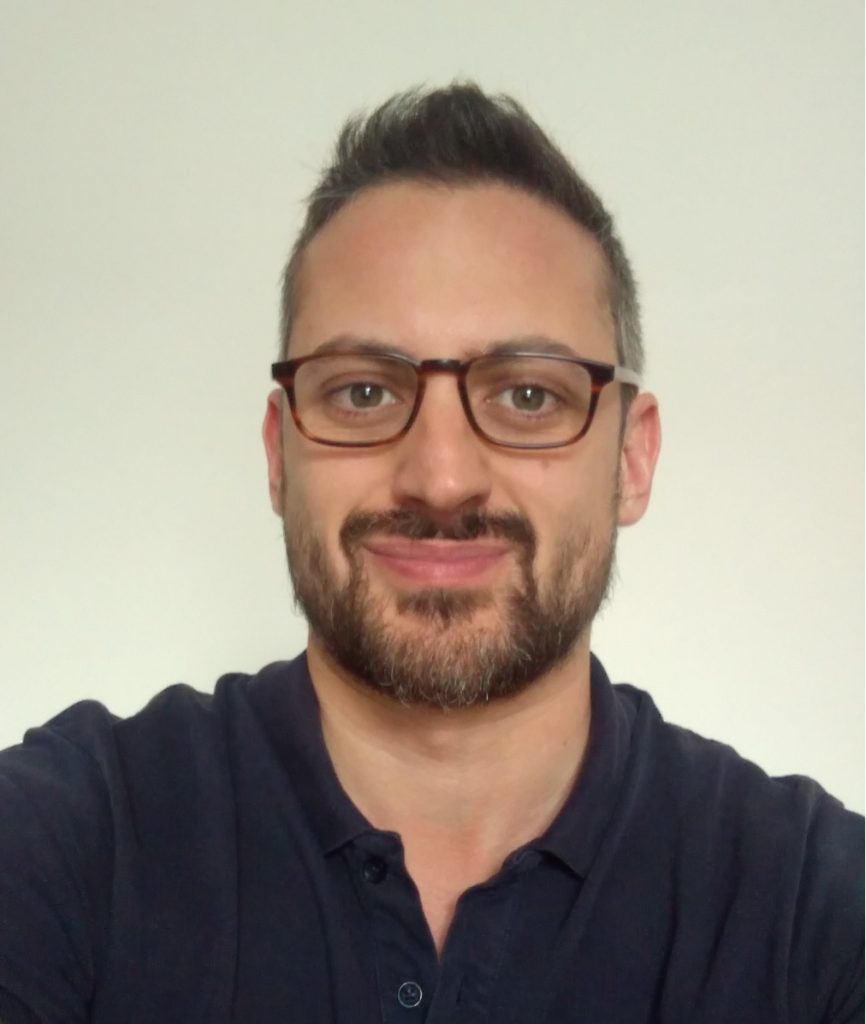Scope
 Inertial Measurement Units are systems integrating different typologies of Inertial Sensors, such as accelerometers and gyroscopes, often including other types of sensors (e.g. magnetometers) for providing estimation of object orientation, through a data fusion algorithm. This piece of information is crucial for both analysis and control in many applications, such as automotive, navigation, and flight, and even fundamental for unmanned vehicles deployment.
Inertial Measurement Units are systems integrating different typologies of Inertial Sensors, such as accelerometers and gyroscopes, often including other types of sensors (e.g. magnetometers) for providing estimation of object orientation, through a data fusion algorithm. This piece of information is crucial for both analysis and control in many applications, such as automotive, navigation, and flight, and even fundamental for unmanned vehicles deployment.
The development of MEMS technology experienced during the last two decades, paved the way for the realization of IMUs of reduced dimensions and weight, becoming a compatible solution to human motion analysis, as an alternative to traditional mocap techniques. Reduced costs and the absence of workspace limitation fueled research in this field, dramatically enhancing the spectrum of possible applications.
Lately, minimal configuration of inertial sensors coupled with machine learning-based classifier algorithms constituted a novel research branch for automatic activity recognition, benefitting rehabilitation, healthcare monitoring, well aging, sports, occupational safety, and more.
Despite the large literature produced, research is still feverish in this field, where the identification of novel solutions for both increasing accuracy and reliability, and enlarging the application possibilities, is an open challenge.
The aim of this committee is to act as a collector of the most updated scientific opinion on IMUs, the state of art of the technology and its application to diverse fields, to share through the organization of technical events and special sessions. By continuously selecting examples of applications and developments, from both academy and industry, the committee seeks also to promote maturation of the technology and its integration in the framework of industry 4.0, where a complete new concept of the human-machine interaction is foreseen.
Chair
 Eduardo Palermo is an Assistant Professor and Ph.D. advisor in the Department of Mechanical and Aerospace Engineering of Sapienza University of Rome. He received his Ph.D. in February 2014 in Industrial Production Engineering at Sapienza University. From June 2014 to June 2015 he had a Postdoc appointment at New York University Tandon School of Engineering. His research interest is the design, implementation, and validation of novel technologies in Experimental Biomechanics and Robotics for Rehabilitation, with focus on human gait and motion analysis. His research activity involved wearable inertial sensors, machine learning algorithms, mechatronics, human-computer interactions, bio-signal processing, and measurement for cultural heritage preservation and environmental monitoring.
Eduardo Palermo is an Assistant Professor and Ph.D. advisor in the Department of Mechanical and Aerospace Engineering of Sapienza University of Rome. He received his Ph.D. in February 2014 in Industrial Production Engineering at Sapienza University. From June 2014 to June 2015 he had a Postdoc appointment at New York University Tandon School of Engineering. His research interest is the design, implementation, and validation of novel technologies in Experimental Biomechanics and Robotics for Rehabilitation, with focus on human gait and motion analysis. His research activity involved wearable inertial sensors, machine learning algorithms, mechatronics, human-computer interactions, bio-signal processing, and measurement for cultural heritage preservation and environmental monitoring.
